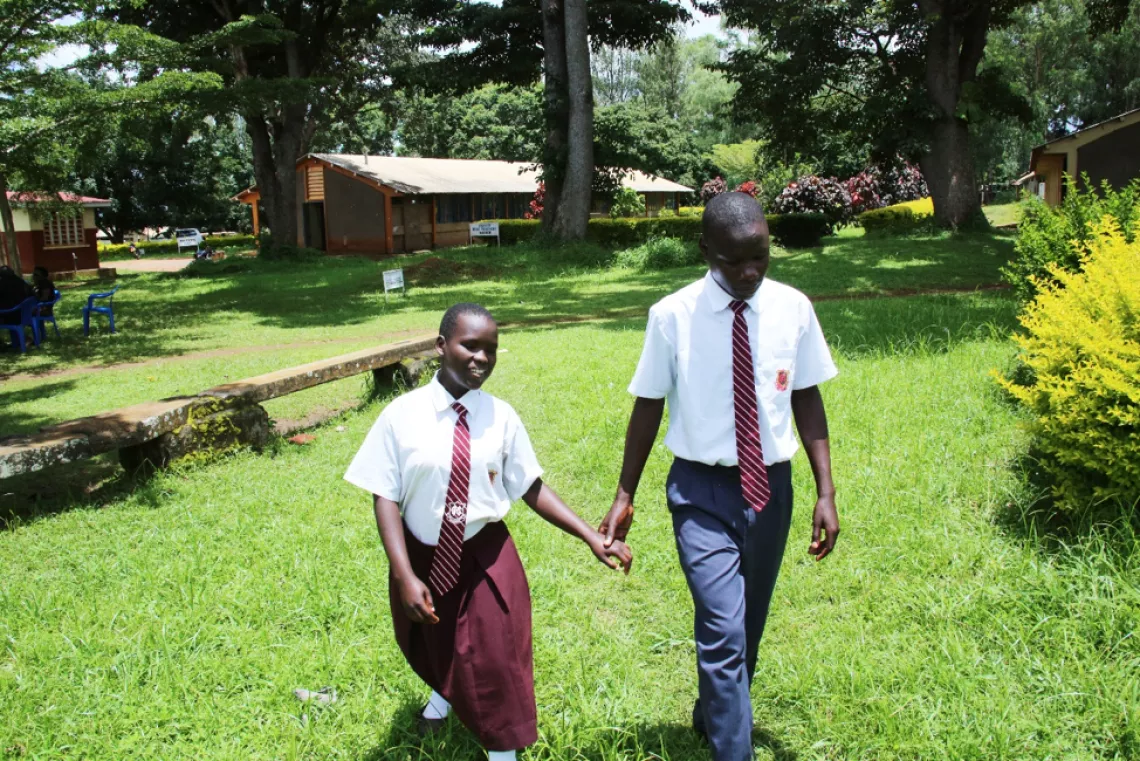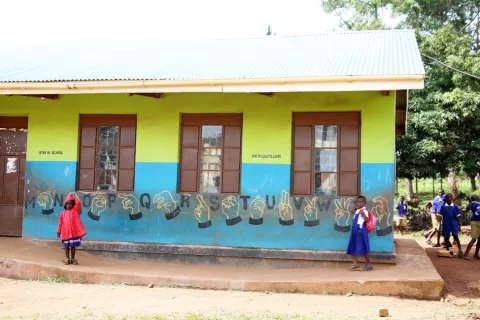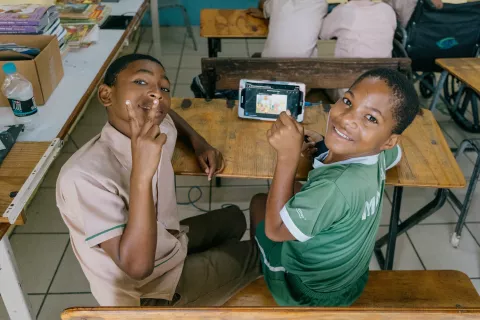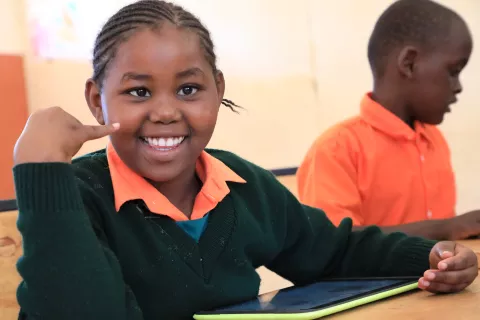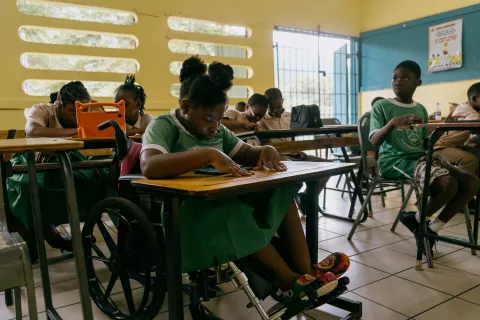Gulu High School Success Story
Students with who are blind or have low vision excel in Northern Uganda
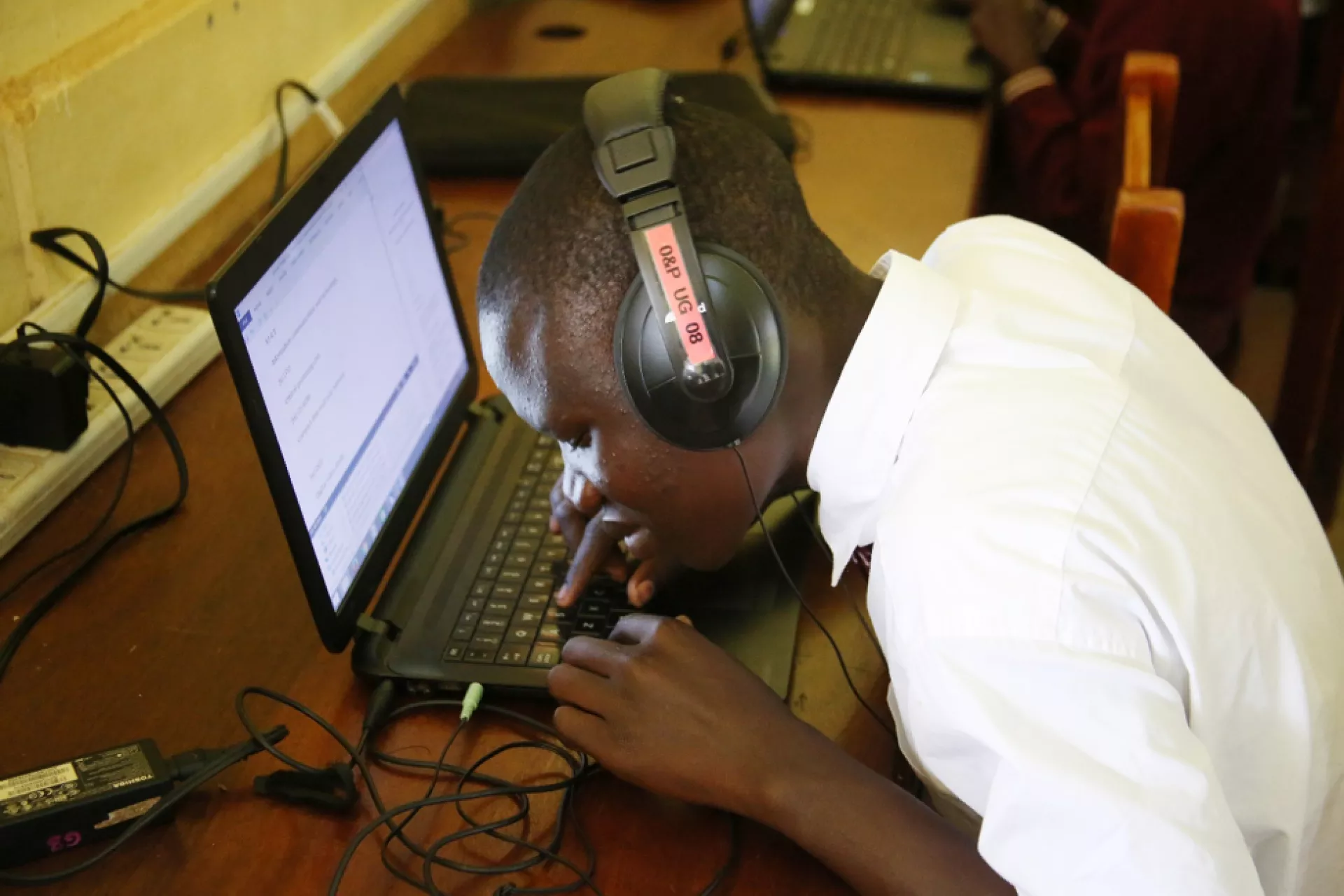
- Available in:
- English
- Español
When George Ntakimanye, a 14-year old student who is blind was introduced to computers at Gulu High School in Senior One in 2019, little did his teachers know that something they had never experienced was about to happen. He had joined from Kamurasi Demonstration Primary School in Masindi where he had created a reputation as a gifted student.
However, his teachers didn’t think that he would lead to a change in the way students who are blind sit their exams. Ntakimanye is blind but learned computers faster than most students of his age and disability. It usually took a year at Gulu High School for students who are blind to master computers and be able to sit their exams. Doing exams on computers was always reserved for students in their second year and above. Those in Senior One did mainly oral exams.
Teachers were shocked when Ntakimanye told them that he should be given a chance to do his examinations on a computer. “We knew he was capable but we thought for exams he should wait. He continued advocating for it until we agreed,” says Kenneth Samuel Owiny, the Exams Secretary at Gulu High’s Blind Annex.
“He passed his exams very well and came top of his class in entrepreneurship. We are an inclusive school, so he beat students without disabilities,” Owiny, who is also blind, adds with a broad smile. “We are very proud of not only George but Jane as well,” he adds.
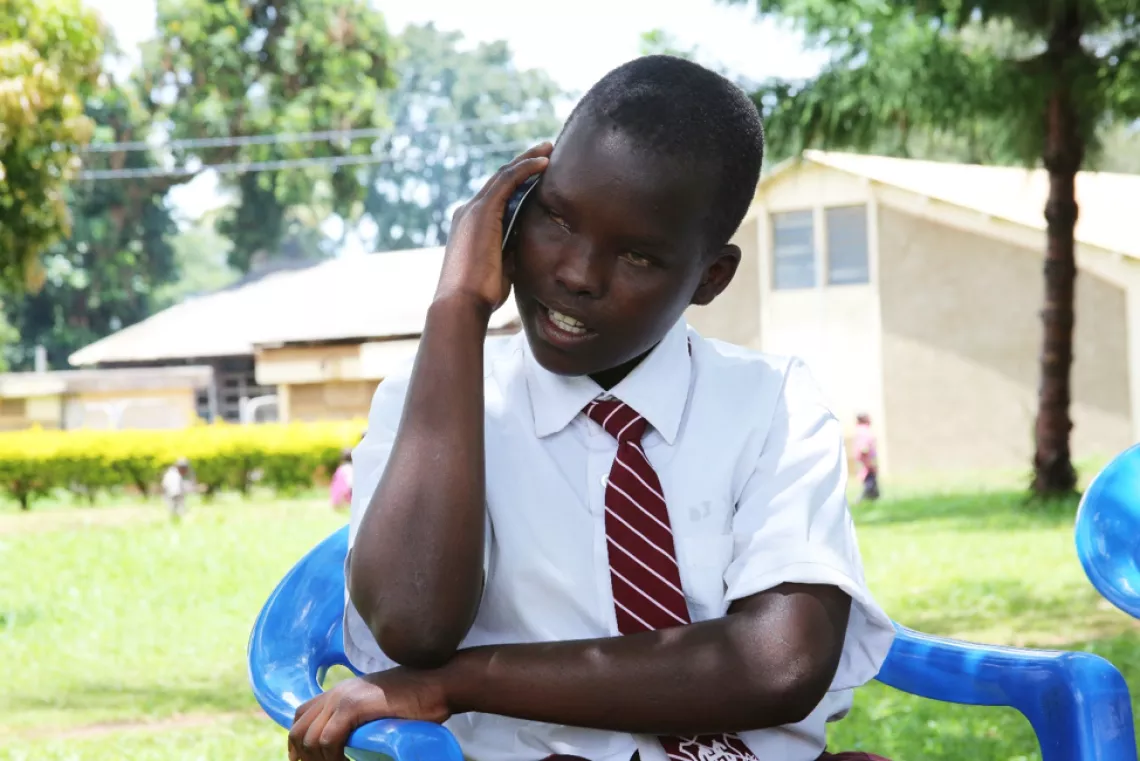
Jane Drichiru, like Ntakimanye, was a pupil at Kamurasi Demonstration Primary School in Masindi District in Mid-Western Uganda where UNICEF implemented the Provision of Accessible Learning Materials for Children with Visual and Hearing Impairment in Primary Schools Project for three years.
When both passed their national primary education, their guardian enrolled them at Gulu High School in Northern Uganda. Although the school has had aunit for students who are blind since the mid-1980s, it has been neglected for years. However, it has been revamped with support from the Joint project between UNICEF and UNESCO funded by the United Nations Partnership on the Rights of Persons with Disabilities who have provided computers installed with software for the students who are blind or have low vision.
Ntakimanye and Drichiru are two out of 17 students who are blind or have low vision at Gulu High, a school with a student population of about 500. Every student who is blind or have low vision has access to a laptop where she/he does her/his projects and revisions. Ntakimanye says:
“The books are not enough though. We need more,”
Drichiru and Ntakimanye have not only excelled with academics, but they are also part of the school’s Paralympics team. At the recent national Paralympics championship in Mpigi District in central Uganda, Drichiru won a bronze medal in the 400 metre category while Ntakimanye was fifth in the 800 metre category.
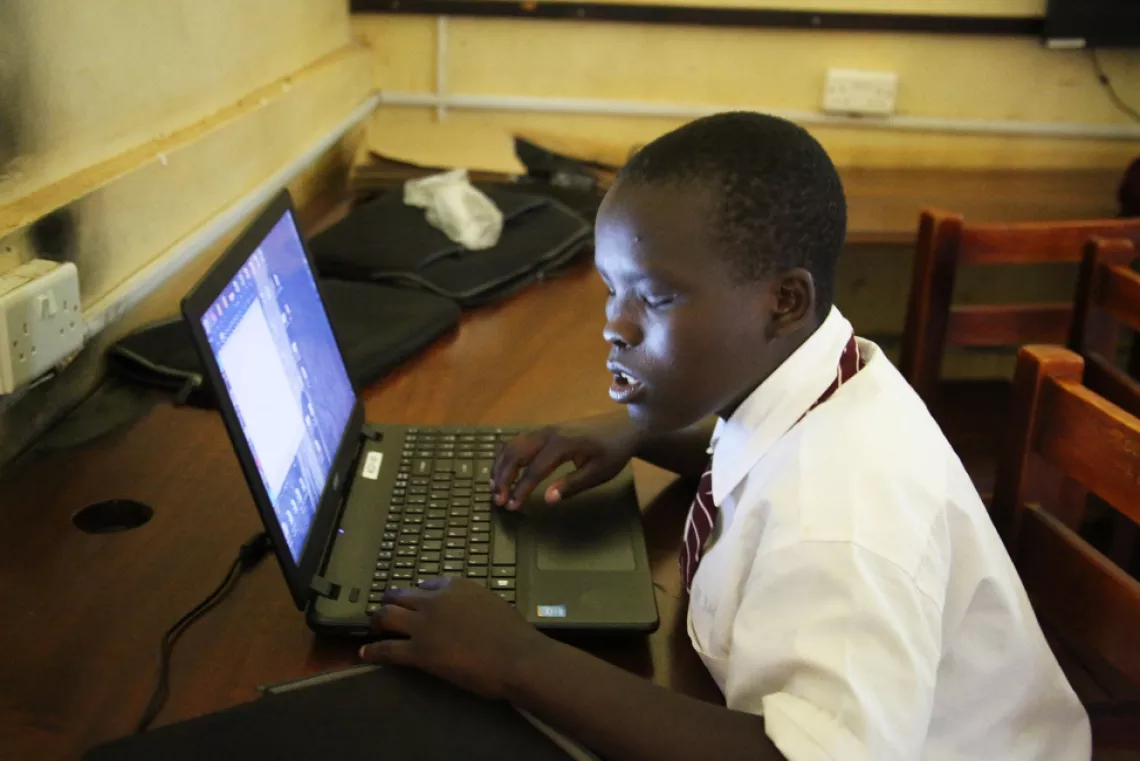
Both students have integrated very well into their secondary school life where they have made new friends but still, keep in touch with teachers at Kamurasi. “Tell teacher Joy to visit us like she did last time,” Drichiru, who is jovial throughout the interview says after which she leans back and then puts on a straight face.
The smile is gone and something seems to be bothering her. She immediately lets it out. “I want my friends at Kamurasi to work hard and join me here to continue with their education. I have learnt how to use a computer and one day, I will become a lawyer.” At the speed she was typing her work earlier in the computer laboratory, there is no doubt that she won’t be able to go through a pile of files quickly enough to find evidence to represent her clients.
